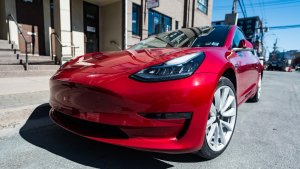How The Automotive Industry Is Adapting To Gen Z’s Demands
Brand reputation and environmental credentials are two important factors.

The number of 17-20 year olds with driver's licenses has fallen by a staggering 40% since the 1990’s. There has been a record decline in the number of teenagers learning to drive, as the shift from ‘car culture’ to ‘mobility culture’ emerges. Gen Zers, the tech-savvy generation, are leading this transformative momentum on the automotive industry.
Who are Gen Z? Generation Z, or ‘post-millennials’ are the digitally native population, born between the mid 1990’s and early 2000’s. They are the most tech-savvy, ethnically diverse and tolerant generation, and they account for around 30% of the total world population.
41% spend at least 3 hours a day online, predominantly on mobile, and this technology-centred lifestyle has led to a shift in retail expectations between millennials and Generation Z.
Gen Zers make consumer decisions based on efficiency, and often take into consideration time, cost and environmental impact before coming to a conclusion.
They have had a profound influence on the automotive industry, with many of them not opting to drive until after they finish Higher Education. Factors including the cost of vehicle ownership, rising costs of university and the emergence of digital convenience disruptors such as Uber.
But it’s not all doom and gloom for the automotive industry, with figures showing that 92% of Gen Zers still plan to own a car, and a third of them even saying they would give up their mobile phone for a year just to have one!
It is estimated that by 2020, Gen Zers will comprise over 40% of the world’s customer base. How can marketers in the automotive industry adapt their methods to engage with this generation? Here are five areas which have been adapted in recent years, in order to appeal to this new wave of consumers.
- Individuality
One of the most important factors influencing consumers is whether a product offers a unique or individual experience.. A Google report reveals that 26% of Gen Zers said they expect retailers to offer a more personalised experience based on their shopping habits and preferences.
Comparatively, 22% of millennials and 11% of baby boomers share that expectation. In the automotive industry, this could involve the option of customising and personalizing vehicles, enabling consumers to show their personality and style.
Research shows that Gen Zers are less concerned about the exterior form of the vehicle and more interested in the interior design. This new wave of consumers aren’t fussy about the brand of their car, but the experience a company provides.
It is therefore necessary for manufacturers in the automotive industry to provide a unique, streamlined experience which accommodates individual preferences.
- Brand Reputability
Customer experience is another important factor for Gen Zers. Trustworthy brands which provide superior engaging experiences are those returned to the most.
This is reflected through the growing popularity of digital disruptors in the automotive industry which are innovative, and have been described as ‘exciting’ and ‘user-friendly’.
- Connectivity
Gen Zers are the first generation to grow up surrounded by technology. As digital natives, they are used to receiving instant information at the click of a button. Connectivity has therefore become a given for Gen Zers with research showing that 47% of U.S.
Gen Z consumers research items on mobile devices while shopping at brick and mortar locations. The demand for mobile availability is therefore a prevalent factor influencing consumer decisions.
Services and products which are accessible on mobile are much more appealing to this technologically advanced generation who demand speed and efficiency.
The automotive industry must too adapt to this shift towards connectivity. This is already becoming apparent through the emergence of autonomous and connected vehicles, with driverless cars on the not-so-distant horizon.
- Environmental Impact
Generation Z’s social and environmental consciousness has also had an effect on the automotive industry. Taking into consideration the environmental impact of a product and whether a brand is socially responsible has become more prevalent amongst consumers in recent years.
This provides an explanation for the significant decrease in driving applications over the last decades. The automotive industry has clearly adapted to this growing consciousness by developing electric cars.
- Affordability and Safety
The price and safety of a vehicle are two of the primary concerns for Gen Zers. Financially, they have developed a more fiscally conservative approach. They are more interested in financial education and have a strong desire to grow their savings and avoid spending money they don’t have. How can the automotive industry overcome that?
In regards to safety, figures show that autonomous cars are significantly safer than traditional vehicles as figures show that 90% of road traffic accidents are caused by human error. A study conducted by Autotrader in 2016 found that 61% of Gen Zers think roads would be safer if most vehicles were self-driving, citing fewer accidents occurring as a result of distracted driving.
Likewise, the emergence of these autonomous and electric cars benefit consumers financially, with huge savings being made on road tax and petrol.
Gen Z are demanding technology like no group before them, and when you also take into account the rise of remote and flexible working, automotive groups need to go the extra mile to appeal to them. This isn’t just in the UK - it’s all over the world, and cracking the Gen Z code is not easy - but it’s exciting.
Andy Allan is Owner at CAT Autokeys
Thanks for signing up to Minutehack alerts.
Brilliant editorials heading your way soon.
Okay, Thanks!

